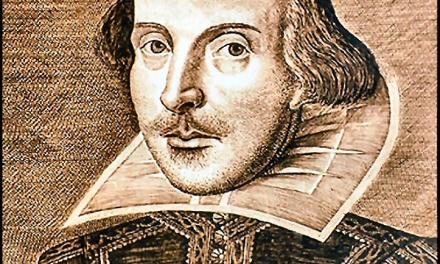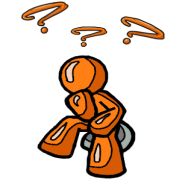Today (5 March) is World Book Day, however literacy critics have warned the day has become less about reading and more about dressing up.
In 2014, we reported that only a quarter of young people are reading outside of schools, and with over 800 libraries closing since 2010 – should schools be doing more to change the focus back to reading?
In this blog post we’ll investigate, whilst also looking at which literature is currently used on the English GCSE syllabus.
What is World Book Day?
World Book Day is a celebration of authors, illustrators and books. Designated by UNESCO, it is a world celebration marked in over 100 countries.
Many schools opt to celebrate the occasion through fancy dress, with increased stress for parents but it has also seen increased creativity and imagination in the classroom.
Ultimately, English and Literature is taught in schools through primary and secondary schools and the day can be used as a springboard for improved performance in lessons and exams.
Reading on the syllabus
Literature in schools consists of a blend of required books and others which are down to teacher preferences.
You can read a list of recommending reading by age group in primary and secondary schools, here.
Which books are on the curriculum for GCSE English
For GCSE English Literature and GCSE English Language, the following books are used:
A Christmas Carol: One of the most famous Christmas stories in English Literature. This Charles Dickens’ story follows Ebenezer Scrooge (a miserable, bitter old man with no friends) as three ghosts take him on a story of past, present and future so that he can learn the error of his ways.
Frankenstein: Mary Shelley tells the story of how Victor Frankenstein, in dedicating his life to the study of natural philosophy, gives life to a creature with monstrous human features.
Dr Jekyll and Mr Hyde: This story by Robert Louis Stevenson was first published in 1886 and follows a London lawyer named John Gabriel Utterson who investigates strange occurences between Dr Henry Jekyll and Edward Hyde.
The Hound of the Baskervilles: The third of four Sherlock Holmes novels by Sir Arthur Conan Doyle. Sir Henry Baskerville asks Sherlock Holmes for his help as it seems that a demonic hound has been killing off heirs to the Baskerville fortune. With Holmes too busy to take the case for himself, he sends assistant Dr Watson in the first instance.
Great Expectations: Dickens’ Great Expectations follows a poor young man by the name of Pip. The plot depicts the difference between the classes, as well as the moral of how money does not guarantee happiness – Miss Havisham is rich yet lonely and unhappy; Pip later becomes rich from dishonest earnings, which helps him understand the true value of life.
Pride and Prejudice: This Jane Austen novel follows a parent who seeks to ensure good marriages for her five daughters. Elizabeth Bennet has a bad impression of the arrogance of Mr Darcy, and the wealthy Mr Darcy has bad assumptions of the poor family of Elizabeth. This love story follows the sensitivities and nuances of the relationship between the two.
Macbeth: This classic Shakespeare work sees King Duncan’s generals, Macbeth and Banquo, encountrer three strange women on a bleak Scottish moorland. The women prophesy that Macbeth will be given the title of Thane of Cawdor and then becomes King of Scotland, while Banquo’s heirs shall be king. Macbeth and his wife plot to kill the king but are plagued by guilt and Macbeth embarks on a reign of terror.
Sherlock Holmes: The Sign of Four: Another Arthur Conan Doyle, Sherlock Holmes classic. The famous detective is visited by Mary Morstan, whose father vanished ten years before – however has received an exquisite gift every year since his disappearance. Holmes and Watson accompany her to solve the case of the unknown benefactor.
Hamlet: Another Shakespeare play, this follows the journey of Prince Hamlet of Denmark as he seeks revenge on his deceased uncle, Claudius. The ghost of King Hamlet reveals to the Prince that the king was murdered by Claudius, who had become the new king. Upon hearing this, Hamlet puts on a play for Claudius which leads to grave consequences.
Much Ado About Nothing: In this play, Shakespeare follows Claudio and Hero who fall in love and plan to get married. Don John slanders Hero with false evidence and the wedding is ruined, but her family suspect slander and decide to pretend that Hero died from shock. As Claudio mourns Hero’s death, Don John’s evil plan is soon revealed.
Romeo and Juliet: Possibly Shakespeare’s most famous play, the story tells of a long feud between the Montague and Capulet families, and the resulting fate on their relationship.
Study English on EDLounge
All these books are available through EDLounge, with e-books also available to enhance student engagement and provide support for different learning needs and styles. Lessons and assessments are available on the stories above, with support available from teachers via EDClass+.
What is EDLounge?
EDLounge provides over 10,000+ lessons across a wide range of subjects.
It is designed to provide fully inclusive, tailored learning around the world. As a virtual learning platform, the service is ideal alternative provision. EDClass+ has a range of features to ensure safeguarding, including access to teacher support and eyes-on learning. All EDLounge staff are enhanced DBS checked.
In 2019, EDLounge was inspected by Ofsted. You can view the report here.
To find out how EDLounge has helped improve attendances through schools around the world click here.









